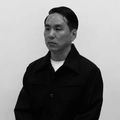Interviews
FTC charges companies with 'Bamboo-zling' consumers with false product claims
13 Aug '09
5 min read
The Federal Trade Commission has charged four sellers of clothing and other textile products with deceptively labeling and advertising these items as made of bamboo fiber, when they are made of rayon. The complaints also charge the companies with making false and unsubstantiated “green” claims that their clothing and textile products are manufactured using an environmentally friendly process, that they retain the natural antimicrobial properties of the bamboo plant, and that they are biodegradable.
Three of the companies – Sami Designs, LLC, doing business as (d/b/a) Jonäno; CSE, Inc., d/b/a Mad Mod; and Pure Bamboo, LLC – have settled the FTC's complaints, agreeing to stop making the false claims and to abide by the Commission's Textile Fiber Products Identification Act (Textile Act) and Rules. Litigation continues against The M Group, Inc., d/b/a Bamboosa, and its principals.
“With the tremendous expansion of green claims in today's marketplace, it is particularly important for the FTC to address deceptive environmental claims, so that consumers can trust that the products they buy have the environmentally friendly attributes they want,” said David Vladeck, Director of the FTC's Bureau of Consumer Protection. “When companies sell products woven from man-made fibers, such as rayon, it is important that they accurately label and advertise those products – both with respect to the fibers they use and to the qualities those fibers possess.”
According to the Commission's complaints, the companies falsely claim that their rayon clothing and other textile products are “100% bamboo fiber.” They market them under such names as “ecoKashmere,” “Pure Bamboo,” “Bamboo Comfort,” and “BambooBaby.” Rayon is a man-made fiber created from the cellulose found in plants and trees and processed with a harsh chemical that releases hazardous air pollutants. Any plant or tree could be used as the cellulose source – including bamboo – but the fiber that is created is rayon.
The complaints also allege that these four companies make a number of other “green” claims about their clothing and textile products, none of which are true or substantiated. All four companies claim their products retain the bamboo plant's antimicrobial properties. The settling companies – Jonäno, Mad Mod, and Pure Bamboo – also claim that their products are made using environmentally-friendly manufacturing processes, and both Pure Bamboo and Bamboosa make unqualified claims that their products are biodegradable, and that they will completely break down and return to the elements found in nature in a reasonably short period of time after customary disposal.
As the Commission charges, even if the rayon used in the companies' clothing and textile products is manufactured using bamboo as the cellulose source, rayon does not retain any natural antimicrobial properties of the bamboo plant. The rayon manufacturing process, which involves dissolving the plant source in harsh chemicals, eliminates any such natural properties of the bamboo plant. Similarly, the Commission charges that the companies' clothing and textiles are not made using an environmentally friendly process.
Three of the companies – Sami Designs, LLC, doing business as (d/b/a) Jonäno; CSE, Inc., d/b/a Mad Mod; and Pure Bamboo, LLC – have settled the FTC's complaints, agreeing to stop making the false claims and to abide by the Commission's Textile Fiber Products Identification Act (Textile Act) and Rules. Litigation continues against The M Group, Inc., d/b/a Bamboosa, and its principals.
“With the tremendous expansion of green claims in today's marketplace, it is particularly important for the FTC to address deceptive environmental claims, so that consumers can trust that the products they buy have the environmentally friendly attributes they want,” said David Vladeck, Director of the FTC's Bureau of Consumer Protection. “When companies sell products woven from man-made fibers, such as rayon, it is important that they accurately label and advertise those products – both with respect to the fibers they use and to the qualities those fibers possess.”
According to the Commission's complaints, the companies falsely claim that their rayon clothing and other textile products are “100% bamboo fiber.” They market them under such names as “ecoKashmere,” “Pure Bamboo,” “Bamboo Comfort,” and “BambooBaby.” Rayon is a man-made fiber created from the cellulose found in plants and trees and processed with a harsh chemical that releases hazardous air pollutants. Any plant or tree could be used as the cellulose source – including bamboo – but the fiber that is created is rayon.
The complaints also allege that these four companies make a number of other “green” claims about their clothing and textile products, none of which are true or substantiated. All four companies claim their products retain the bamboo plant's antimicrobial properties. The settling companies – Jonäno, Mad Mod, and Pure Bamboo – also claim that their products are made using environmentally-friendly manufacturing processes, and both Pure Bamboo and Bamboosa make unqualified claims that their products are biodegradable, and that they will completely break down and return to the elements found in nature in a reasonably short period of time after customary disposal.
As the Commission charges, even if the rayon used in the companies' clothing and textile products is manufactured using bamboo as the cellulose source, rayon does not retain any natural antimicrobial properties of the bamboo plant. The rayon manufacturing process, which involves dissolving the plant source in harsh chemicals, eliminates any such natural properties of the bamboo plant. Similarly, the Commission charges that the companies' clothing and textiles are not made using an environmentally friendly process.
Popular News
Leave your Comments
Editor’s Pick
































-Ltd..jpg?tr=w-120,h-60,c-at_max,cm-pad_resize,bg-ffffff)





.jpg?tr=w-120,h-60,c-at_max,cm-pad_resize,bg-ffffff)
.jpg?tr=w-120,h-60,c-at_max,cm-pad_resize,bg-ffffff)






